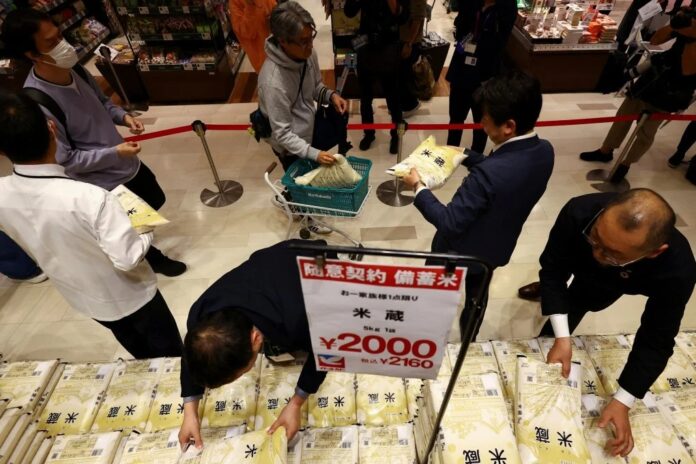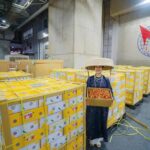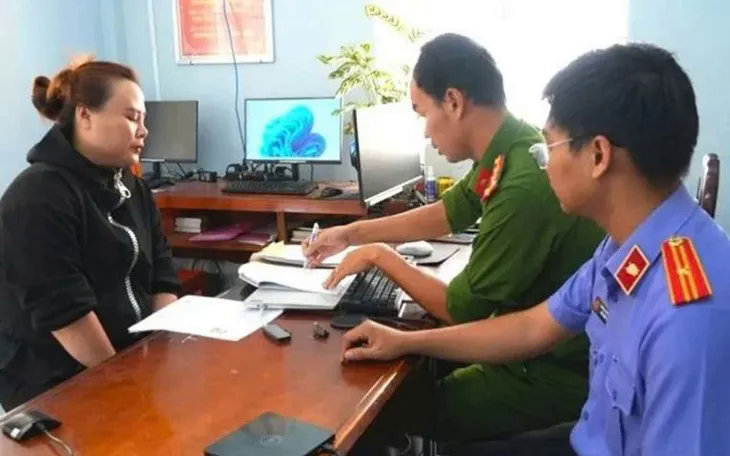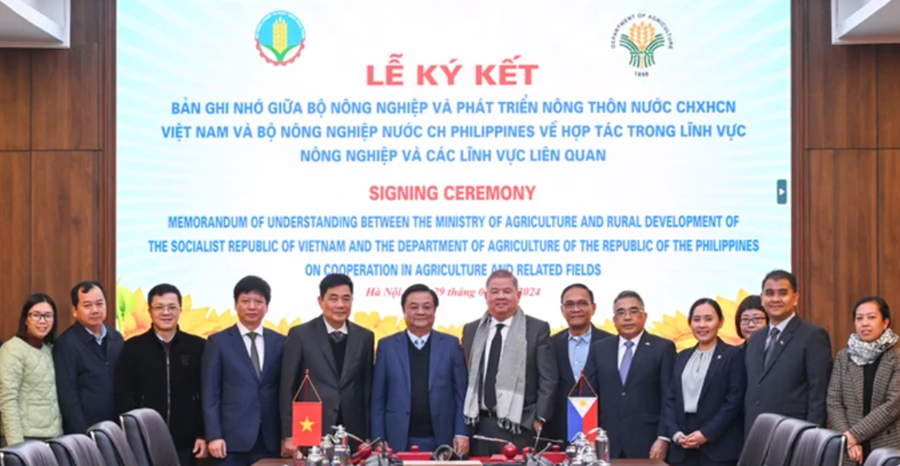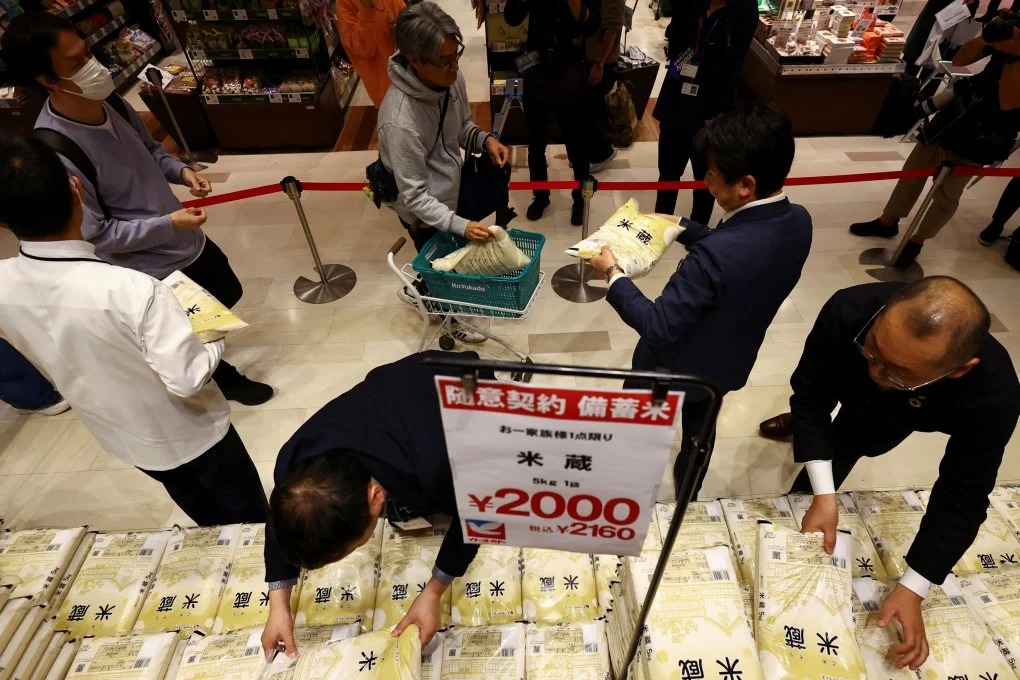
Japanese citizens queuing up to purchase affordable rice from government reserves, a response to the surge in rice prices.
Despite the rainy weather, many Japanese citizens lined up early on Saturday morning (May 31st) to purchase affordable rice from government reserves, now available in supermarkets due to the surge in rice prices.
Consumer goods provider Iris Ohyama started selling rice—sourced directly from government reserves—at two of its locations at 9 am. It is the first traditional retailer in Japan to offer this reserved rice, just an hour ahead of the Ito Yokado supermarket chain, which began sales at a branch in Tokyo’s Ota ward at 10 am.
According to The Japan Times, at the Iris Ohyama store in Matsudo city, despite the relentless rain, a line had formed early on, stretching from the main entrance, around the building, and into the parking lot. By 6 am, approximately 100 people were waiting. Some had even arrived as early as 8 pm the previous evening to secure their spot.
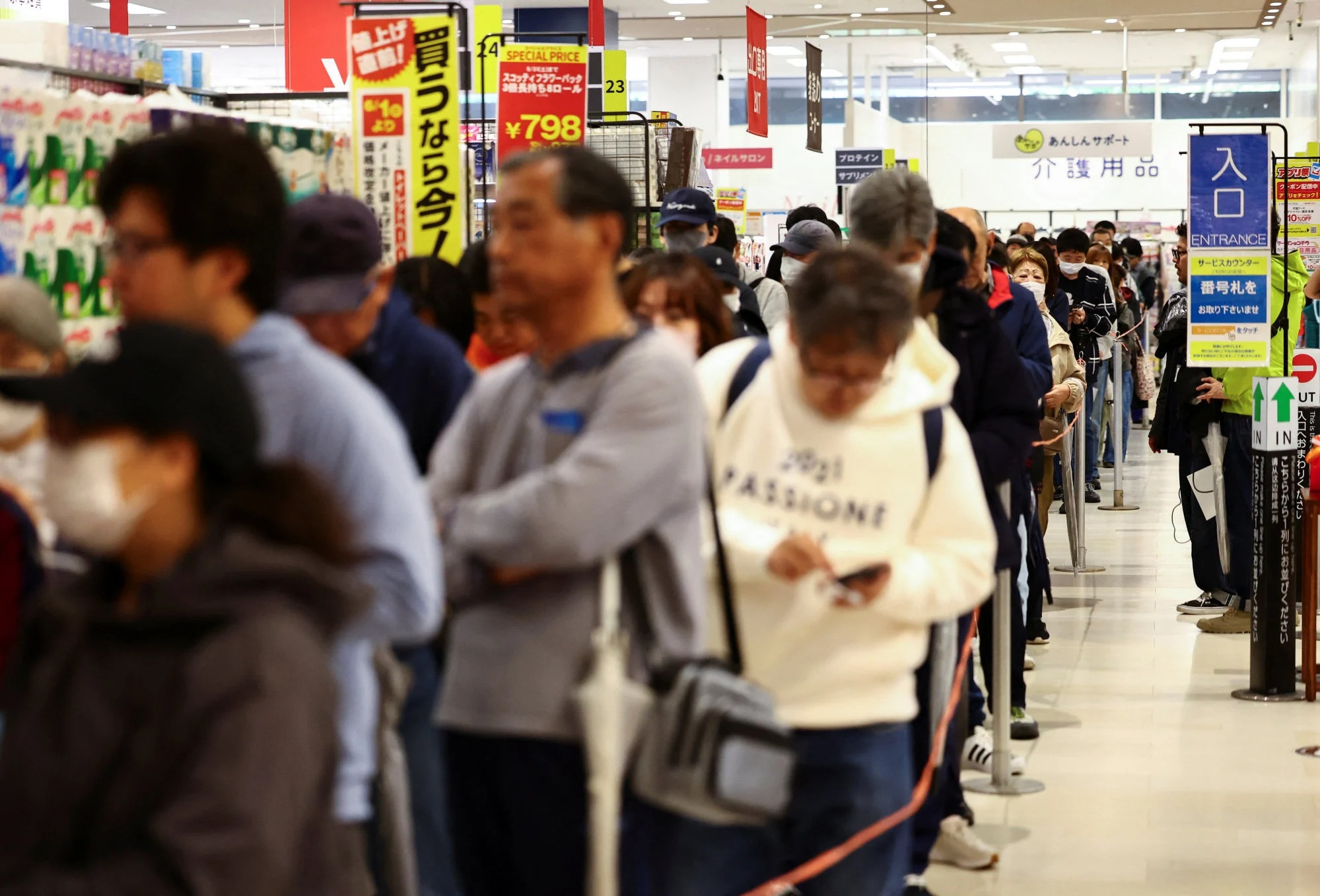
Citizens queuing up for affordable rice, a rare sight indicative of the current rice shortage and price surge in Japan.
At 8 am, the store distributed numbered tickets, limiting purchases to one bag of rice per person. The 5kg bags were sold at 2,000 yen ($14) before tax—half the average price in recent weeks. All 65 bags prepared for the day were quickly sold out, leaving many empty-handed.
“To buy rice at this price, you have to come early,” shared a woman in her 60s. “Of course, there is some worry about the quality, but the price is most important. If it’s not tasty, you can mix it with other ingredients or cook it differently; there’s always a way.”
The quality concern stems from the fact that this rice is from older government reserves. Previously, Yuichiro Tamaki, leader of the Democratic Party for the People, referred to this rice as “feed for livestock,” causing a public backlash.
However, this concern doesn’t seem to deter consumers. The long line at the Iris Ohyama store highlights a demand that far exceeds expectations. Previously, on May 29th, at 1 pm, Iris Ohyama opened online sales, and all the rice they planned to sell was snapped up in just 45 minutes, according to NHK.
On the same day, the company received the batch of rice, immediately starting the milling and packaging process. By May 30th, the first shipments were dispatched—earlier than planned.
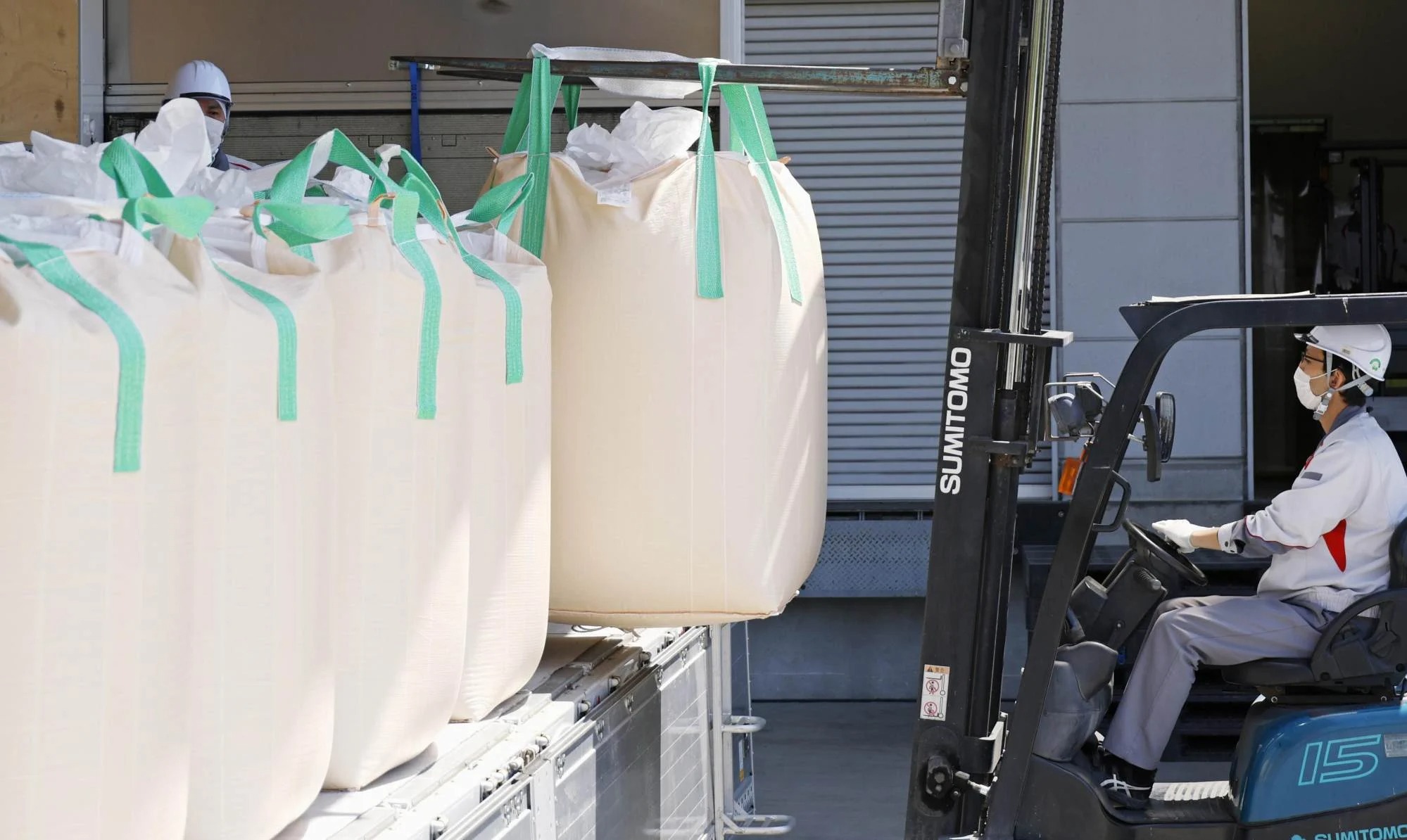
A stack of rice bags, part of the Japanese government’s reserves, now being sold to the public to alleviate the rice shortage.
Iris Ohyama signed the agreement to purchase the government’s reserved rice on May 27th, through its parent company, totaling 9,000 tons of rice from the 2022 harvest, to be delivered and sold over the next two months. Meanwhile, the Ito Yokado supermarket chain has secured 4,500 tons of rice from the same harvest.
The average price of rice in Japanese supermarkets has been steadily increasing in recent months, reaching a record high of 4,285 yen for a 5kg bag in mid-May—nearly double the price from the same period last year.
This prolonged price hike, which began last summer, is attributed to a combination of factors: prolonged agricultural policies, record-high tourist numbers, crop damage, and heightened hoarding tendencies.
Concurrently, the National Consumer Affairs Center of Japan reported a sharp increase in complaints about fake websites selling rice at extremely low prices since March.
The Komorebi & The Miyabi: An Investment Opportunity That’s Impressing the Investor Sphere
On the morning of May 31, 2025, the seaside city of Haiphong witnessed a vibrant gathering at the Pullman Hotel. The coastal breeze carried an air of excitement as hundreds of guests converged to partake in the official launch event of two distinct Japanese-inspired districts within the grand Vinhomes Royal Island resort metropolis – The Komorebi and The Miyabi.
Japanese Businesses Should Invest in Vietnam’s Semiconductor Industry Now
With the ambition to become the semiconductor hub of the region and a crucial link in the global semiconductor supply chain, Vietnam has been attracting a significant number of foreign investors. Given the strong political and economic ties between our countries, Deputy Prime Minister Nguyen Chi Dung encourages Japanese businesses, particularly Kioxia Corporation, to seize the opportunity and invest in Vietnam’s semiconductor industry.
The Soaring Sand Prices: Da Nang Contemplates Collaboration with Quang Nam for a Solution
The Danang People’s Committee has proposed to the provincial government of Quang Nam a plan to inspect and increase the capacity of sand mines. This initiative aims to ensure a stable supply of sand, a vital resource for construction and development, while also addressing any environmental concerns and ensuring sustainable practices. With careful planning and collaboration, this project has the potential to boost the economy and meet the demands of a growing city.

